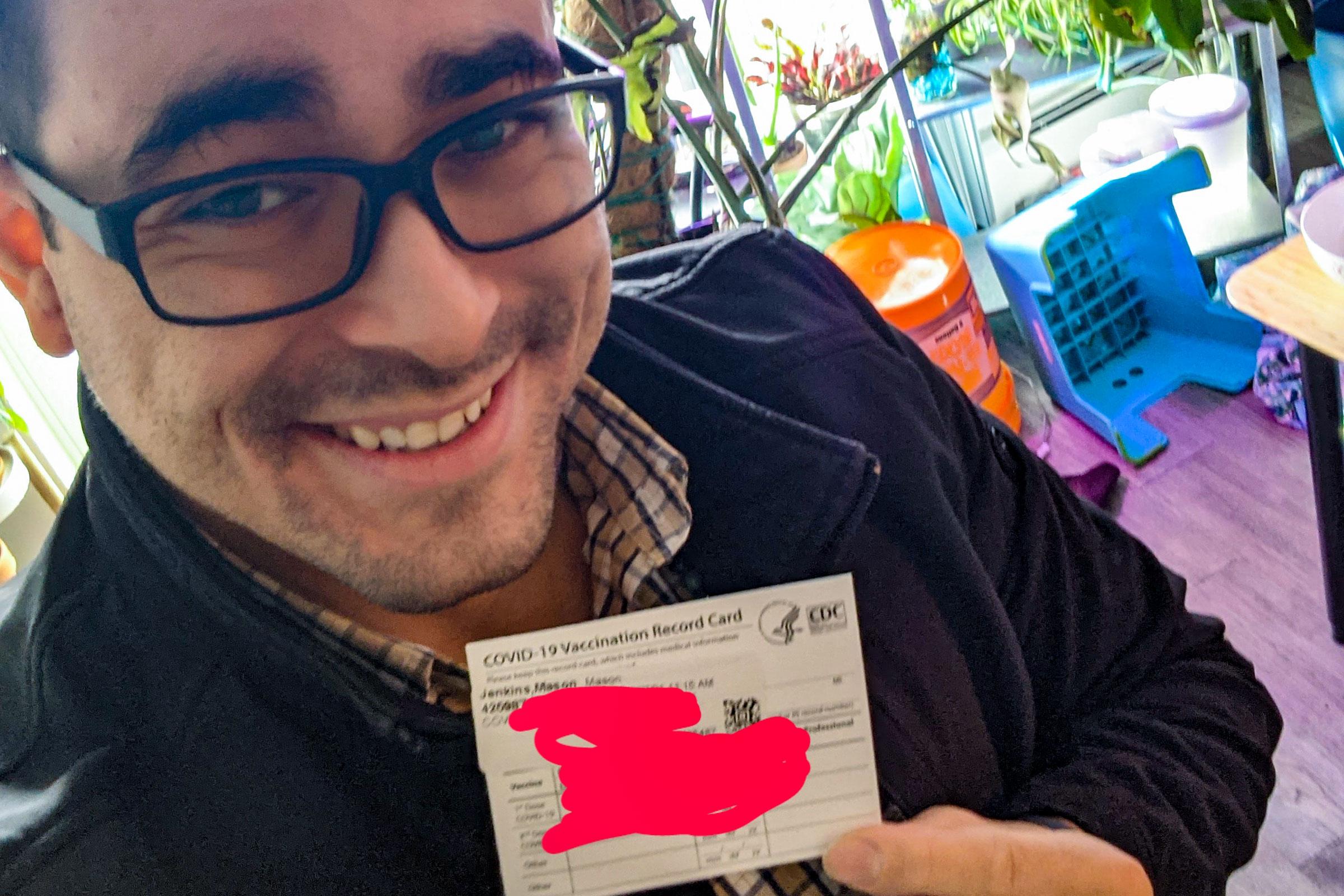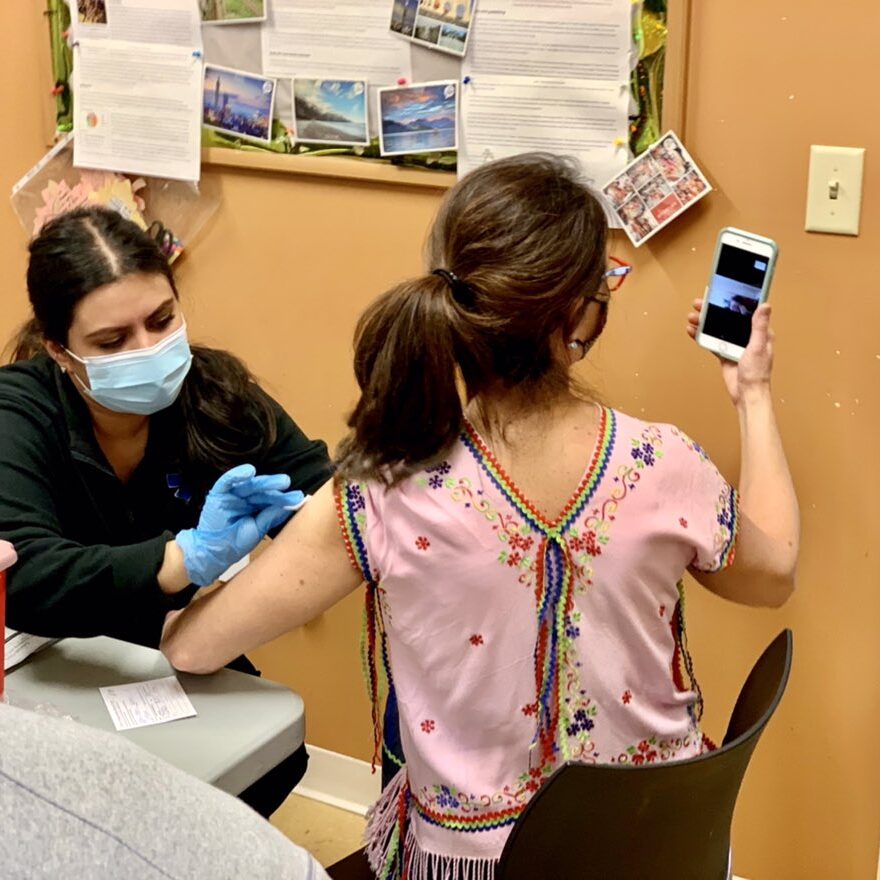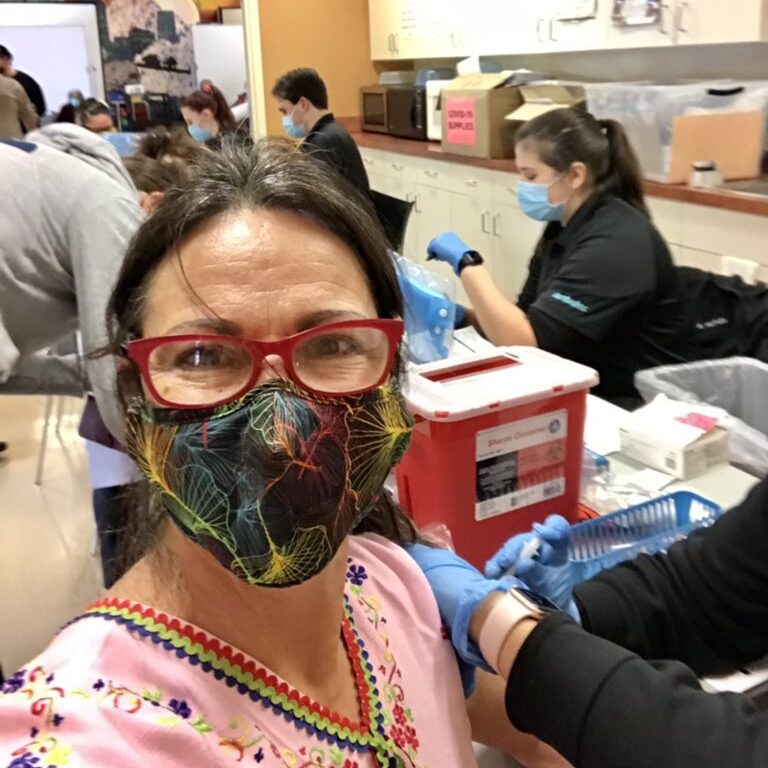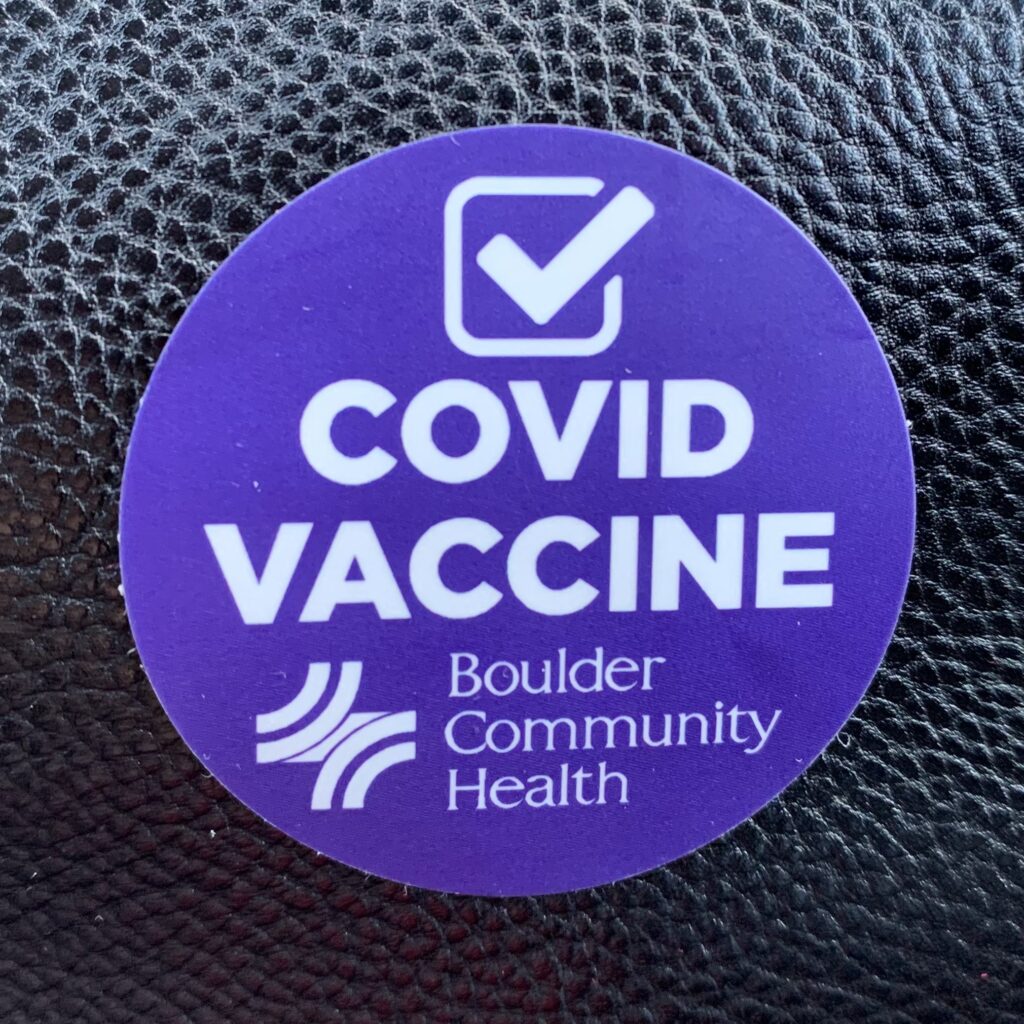
“COVID sucks.”
That pretty much sums up the year Mason Jenkins, of Glendale, has had. So when he was able to get immunized, Jenkins snapped a selfie with his vaccination card — blurring out personal information to thwart identity thieves. Sharing the picture was cathartic, Jenkins said — and potentially persuasive.
“My family, who I love and adore, still has vaccine hesitancy and we’ve had family members literally get COVID and have really serious side effects. It was really important to me to show my family that there’s no microchip. I’m totally safe. I’m fine,” he emphasized.
Jenkins dreams of becoming an educator and one day hopes to share the selfie with students or with his own kids.

Karen Robertson of Denver live streams her vaccination to her students, Feb. 17, 2021. 
Karen Robertson of Denver snaps a selfie while getting the COVID-19 vaccine in Aurora, Feb. 17, 2021.
Denverite Karen Robertson is already an educator. She teaches English to immigrants, most of whom are refugees, in Aurora. Many of them are wary of the vaccine. So when vaccination day came, she not only got pictures, she live-streamed the whole thing to her class.
“It was so great. And they were so worried about me. ‘Teacher, teacher! Are you OK?’”
Robertson continued her live feed while she waited the customary 15 minutes to be monitored for side effects. “I think it really matters that they see that not only were we not afraid, but we wanted to take them [the vaccines] and we were excited to have them.”
Many Coloradans told CPR News that encouragement — especially to communities of color who are underrepresented in vaccinations — was a big reason they posted selfies to social media.
There is evidence that knowing someone who’s gotten a vaccine increases willingness to get one, said University of Denver sociologist Jennifer Reich. But Reich, who studies vaccine hesitancy, offers some words of caution as people clamor for the COVID-19 shot.
“We run the risk of having photos posted by people who look young and healthy, who don't appear to meet a priority group. And that can have a counter-intuitively negative effect,- making people wonder if the vaccine is unfairly allocated. And that creates the risk of not just distrusting the vaccine, but perhaps the public health systems who are messaging about the vaccine.”
Reich is the author of “Calling The Shots: Why Parents Reject Vaccines” and she worries that the “long-term outcomes of us undercutting trust in public institutions can carry far reaching effects long beyond COVID.”
Of course, the reason someone is eligible for the vaccine isn’t always visible, whether it’s their job or their pre-existing conditions. It’s why Janette Park, of Boulder, won’t be sharing a selfie when she gets inoculated. She fears an inquisition about her health, one that might take on a racist tone. Park, who’s Asian-American, said she was subjected to racial slurs during the recent protests for racial justice. And she doesn’t want to open herself up to that again.
“I think there’s definitely the opportunity for an extra layer of questioning my validity of getting the vaccine. I don't need to tell everyone [about] any comorbidities that I might have.”

Meanwhile Kaitlin Turner, of Cañon City, didn’t want to open herself up to stressful political fights. She lives in a place where people have complained about wearing masks and where folks aren’t necessarily eager to get the vaccine.
“I just couldn't put myself in a place where I'd hear negativity about it,” she said. “It was just a moment of joy for me that I didn't want to put it out there and risk hearing someone being negative about it.”
At UCHealth, one of the state’s biggest vaccinators, people are neither encouraged or discouraged from taking selfies. But, stresses infectious disease expert Dr. Michelle Baron, “we ask people to be polite when they do it. To make sure that people who are in the picture want to be in the picture.”
She noted that UCHealth hasn’t had any issues that she knows of.Several trypanophobics (people afraid of needles) told CPR News they wince at pictures of the actual injection. So to keep from triggering them, you might instead snap a photo of your bandaid, a vaccination sticker, or, as Nancy Mau, of Arvada, did, of the facility where you got it. “I posted a pic of the hospital, with thanks to them, science, and the president,” she told us on Twitter.









